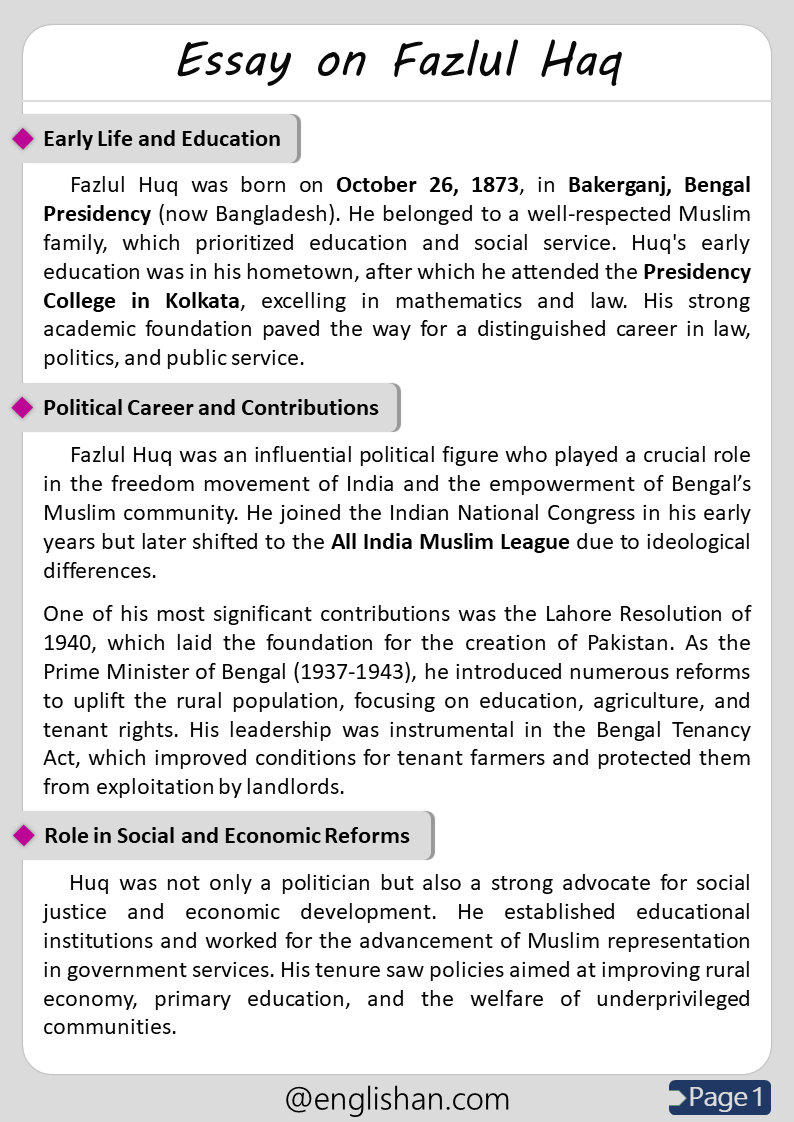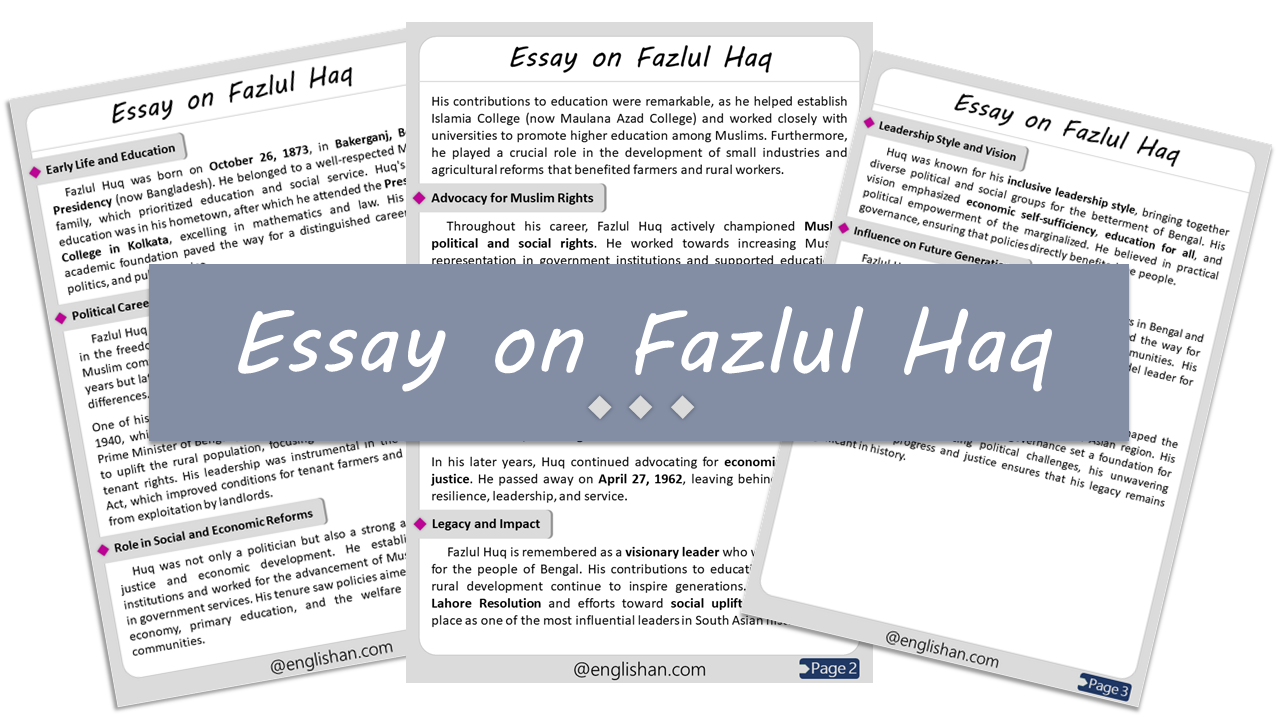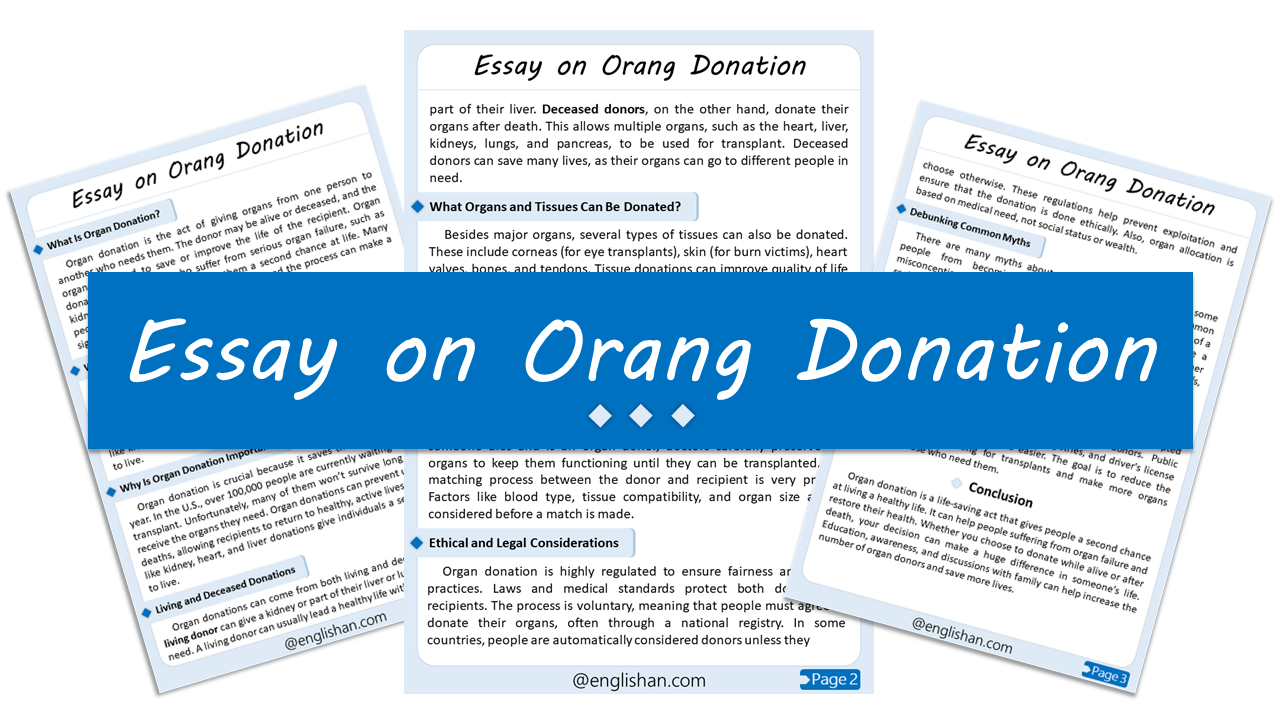When writing about Fazlul Huq, it’s important to understand his role as a leader who worked for social reforms and helped improve lives in Bengal. This essay on Fazlul Huq explains his early life, political career, important speeches, and contributions to the Pakistan Movement. It’s written in 250 words to help students with homework or exams. You can download this Fazlul Huq essay as a free PDF or image to study or print.
10 Lines Fazlul Huq Essay for Class 2 to Class 5
- Fazlul Huq was a famous leader from Bengal.
- He was born in 1873.
- Huq was a lawyer and politician.
- He worked to help poor people.
- Fazlul Huq was the first Muslim to become the Prime Minister of Bengal.
- He played a role in the Pakistan Movement.
- Huq supported education and social reforms.
- He gave a famous speech called the “Day of Deliverance.”
- Fazlul Huq worked with many leaders of his time.
- He is remembered for his strong leadership and service.

250 Words Essay on Fazlul Huq for Middle School
Fazlul Huq was a well-known political leader and lawyer from Bengal, born in 1873. He is remembered as a strong and dedicated leader who worked hard to improve the lives of the people in his region. Huq was the first Muslim to become the Prime Minister of Bengal, which was a significant achievement during British rule in India.
Throughout his career, Fazlul Huq focused on social reforms and education. He believed in helping poor people and worked to bring positive changes in society. He was also an important part of the Pakistan Movement, which aimed to create a separate country for Muslims.
One of his famous moments was the “Day of Deliverance” speech, which highlighted the end of British rule in India and called for unity among Muslims. Fazlul Huq worked with many important leaders of his time and was respected for his honesty and strong leadership.
Even after his political career, Fazlul Huq continued to support education and social causes. Today, he is remembered as an important figure who helped shape the history of Bengal and Pakistan. His work inspired many future leaders to work for the welfare of their people.
500 Words Fazlul Huq Essay for Upper Primary and Lower Secondary
Early Life and Education
Fazlul Huq was born on October 26, 1873, in Bakerganj, Bengal Presidency (now Bangladesh). He belonged to a well-respected Muslim family, which prioritized education and social service. Huq’s early education was in his hometown, after which he attended the Presidency College in Kolkata, excelling in mathematics and law. His strong academic foundation paved the way for a distinguished career in law, politics, and public service.
Political Career and Contributions
Fazlul Huq was an influential political figure who played a crucial role in the freedom movement of India and the empowerment of Bengal’s Muslim community. He joined the Indian National Congress in his early years but later shifted to the All India Muslim League due to ideological differences.
One of his most significant contributions was the Lahore Resolution of 1940, which laid the foundation for the creation of Pakistan. As the Prime Minister of Bengal (1937-1943), he introduced numerous reforms to uplift the rural population, focusing on education, agriculture, and tenant rights. His leadership was instrumental in the Bengal Tenancy Act, which improved conditions for tenant farmers and protected them from exploitation by landlords.
Role in Social and Economic Reforms
Huq was not only a politician but also a strong advocate for social justice and economic development. He established educational institutions and worked for the advancement of Muslim representation in government services. His tenure saw policies aimed at improving rural economy, primary education, and the welfare of underprivileged communities.
His contributions to education were remarkable, as he helped establish Islamia College (now Maulana Azad College) and worked closely with universities to promote higher education among Muslims. Furthermore, he played a crucial role in the development of small industries and agricultural reforms that benefited farmers and rural workers.
Advocacy for Muslim Rights
Throughout his career, Fazlul Huq actively championed Muslim political and social rights. He worked towards increasing Muslim representation in government institutions and supported educational policies that benefited the community. His leadership played a crucial role in shaping the political landscape for Muslims in Bengal.
Challenges and Later Life
Despite his immense popularity, Fazlul Huq faced several political challenges. His independent stance often led to conflicts with both the Muslim League and the British authorities. He was removed from his position as Bengal’s Prime Minister in 1943 due to political tensions. However, he remained active in politics and later served in various ministerial roles, including as the Home Minister of Pakistan.
In his later years, Huq continued advocating for economic and social justice. He passed away on April 27, 1962, leaving behind a legacy of resilience, leadership, and service.
Legacy and Impact
Fazlul Huq is remembered as a visionary leader who worked tirelessly for the people of Bengal. His contributions to education, politics, and rural development continue to inspire generations. His role in the Lahore Resolution and efforts toward social upliftment cement his place as one of the most influential leaders in South Asian history.
Leadership Style and Vision
Huq was known for his inclusive leadership style, bringing together diverse political and social groups for the betterment of Bengal. His vision emphasized economic self-sufficiency, education for all, and political empowerment of the marginalized. He believed in practical governance, ensuring that policies directly benefited the people.
Influence on Future Generations
Fazlul Huq’s work laid the foundation for future leaders in Bengal and beyond. His efforts in education and social justice paved the way for policies that continue to benefit underprivileged communities. His ability to balance progress with tradition made him a model leader for generations to come.
Conclusion
Fazlul Huq’s dedication to social and political reforms shaped the future of Bengal and influenced the broader South Asian region. His work in education, tenant rights, and governance set a foundation for future leaders. Despite facing political challenges, his unwavering commitment to progress and justice ensures that his legacy remains significant in history.

Difficult Words Used in 500 Fazlul Huq essay
| Word | Meaning |
|---|---|
| Ideological | Related to a system of ideas or beliefs |
| Tenancy | The possession of land or property by rent |
| Exploitation | The act of using someone unfairly for one’s benefit |
| Resilience | The ability to recover quickly from difficulties |
| Advocacy | Public support for a particular cause or policy |
Fazlul Huq essay PDF
You May Also Like






